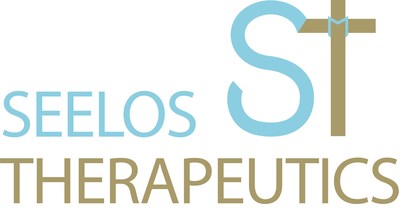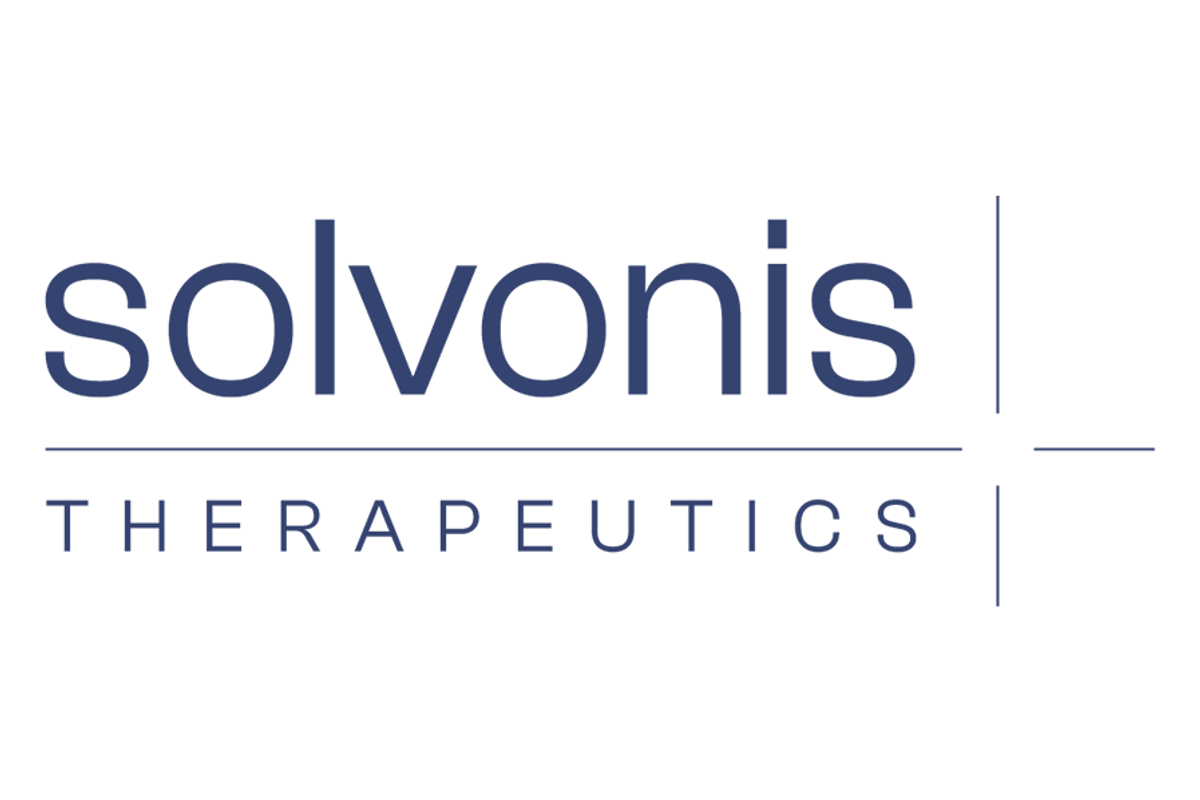- Seelos Therapeutics, Inc. (Nasdaq: SEEL), a clinical-stage biopharmaceutical company focused on the development of therapies for central nervous system disorders and rare diseases, today announced positive in vivo data demonstrating down-regulation of SNCA mRNA and protein-expression from a study of SLS-004 in an in-vivo rodent model utilizing CRISPR-dCas9 gene therapy technology. A single dose of SLS-004 produced a therapeutically desirable 27% reduction on SNCA mRNA and a 40% reduction in SNCA protein expression.
Parkinson's disease (PD) is the second most common neurodegenerative disorder in the world and currently there is no effective treatment to prevent PD or to halt its progression. The SNCA gene has been implicated as a highly significant genetic risk factor for PD. In addition, accumulating evidence has suggested that elevated levels of alpha-synuclein (α-synuclein) are causative in the pathogenesis of PD. Patients with impaired regulation of the SNCA gene show as high as 200% expression of α-synuclein protein. A reduction of 25%-50% in SNCA mRNA and protein expression should be sufficient to restore normal physiological levels of SNCA.
"We are highly encouraged by these preliminary findings demonstrating downregulation of SNCA mRNA and SNCA protein expression in this in vivo model," said Raj Mehra Ph.D., Chairman and CEO of Seelos. "Overexpression of alpha-synuclein has been implicated as a highly significant risk factor for Parkinson's and the accumulation of this protein is a pathological hallmark of synucleinopathies for additional diseases such as dementia with Lewy bodies and multiple system atrophy."
"The effect of SNCA downregulation achieved with our innovative CRISPR-dCas9 platform technology in this in vivo animal study is very promising and we plan to further validate the safety and efficacy of our lentivirus-based epigenome-editing approach in a full-range preclinical study under our Sponsored Research Agreement with Seelos, with the aim of reversing the Parkinson's disease-related pathology," said Boris Kantor , Ph.D., Associate Research Professor, Duke University School of Medicine.
Ornit Chiba-Falek , Division Chief, Translational Brain Sciences at Duke added, "With Seelos, we've moved forward with our innovative CRISPR-dCas9 based gene therapy approach onto in vivo studies. This pilot experiment in mice showed promising results with an effect on SNCA reduction within the presumed target therapeutic window. We are continuing the preclinical studies to further the development of epigenome-editing targeting SNCA towards precision medicine for Parkinson's disease."
Preliminary Findings of In-Vivo Study
Twenty-four adult C57/B6 mice (four cohorts of 6; 3 males/3 females per group) each received stereotaxic infusions of viral vectors with physical viral titer of 2.5x10 7 vg into the substantia nigra of the left hemispheres. The right hemispheres were not injected and served as internal control and baseline for each mouse. The substantia nigra is considered the key region of the brain and is a group of nerve cells which produce dopamine and its degeneration is the primary pathological cause of the motor symptoms in PD.
The cohort administrated with LV vector carrying one key repressor, KRAB-MeCp2, and gRNA targeted the mouse SNCA intron 1, showed a consistent and average trend of 27% reduction in mouse SNCA mRNA in the substantia nigra of the injected left hemisphere compared to their right hemisphere and an average reduction of 40% (left vs. right) in SNCA protein expression. The reduction in mRNA levels in the left versus right substantia nigra was specific to SNCA. Measurement of the mRNA level of another mouse gene, Tomm40, showed almost no effect (an average increase of 2%).
The cohort administrated with LV vector carrying a different effector, DNMT3A, and the same gRNA showed a more subtle effect on both SNCA-mRNA and protein levels (an average of nearly 10% and 20% reduction (left vs. right), respectively). The stronger effect on mouse endogenous SNCA observed for KRAB-MeCp2 versus DNMT3A effectors in the substantia nigra is in concordance with the different effect magnitude on human SNCA expression in a cell-based reporter model, a 55% reduction for KRAB-MeCp2 versus 35% for DNMT3A.
By contrast, the control group cohort administrated with LV vector with no gRNA and no effector showed on average no effect on SNCA mRNA and protein levels in the substantia nigra between the left and the right hemispheres. While the control group that was administrated with saline (no viral vector) showed a slight increase (an average increase of approximately 20%), in SNCA mRNA and protein levels, and this was expected as saline stabilizes mRNA and leads to increase in mRNA and the protein levels.
Post-operative monitoring of the animals was conducted every day for 10 days after viral infusion. No abnormalities were reported. The remainder of the study is ongoing with a complete analysis of all control brain structures, as well as repeating the measurements of the expression levels in a larger cohort and confirmation of the specificity of the site injection by GFP.
About SLS-004
SLS-004 is a novel epigenome-editing approach to modulate expression of SNCA gene mediated by modification of DNA-methylation. SLS-004 utilizes an all-in-one lentiviral vector harboring dCas9-DNA methyltransferase 3A (DNMT3A) to enrich DNA-methylation within CpGs island at the SNCA intron 1 region. The system resulted in a precise and fine-tuned downregulation (30%) of SNCA overexpression in hiPSC-derived dopaminergic neurons from a PD patient with the triplication of the SNCA locus (SNCA-Tri). Most importantly, the reduction of SNCA expression mediated by the developed system was sufficient to ameliorate disease related cellular phenotypes. The in vitro studies achieved several key millstones including the establishment that DNA hypermethylation at SNCA intron 1 allows an effective and sufficient tight downregulation of SNCA expression levels and suggests the potential of this target sequence combined with the CRISPR-dCas9 technology as a novel epigenetic-based therapeutic approach for PD.
Forward Looking Statements
Statements made in this press release, which are not historical in nature, constitute forward-looking statements for purposes of the safe harbor provided by the Private Securities Litigation Reform Act of 1995. These statements include, among others, those regarding the safety and efficacy of SLS-004 and its ability to reduce SNCA mRNA and SNCA protein expression, the role of SNCA gene in PD, the ability of SLS-004 to target the regulatory mechanisms of SNCA expression, the ability of Seelos and Duke University to replicate the results of the gene therapy study in other preclinical and clinical studies, the ability of Seelos and Duke University to validate the safety and efficacy of a lentivirus-based epigenome-editing approach, the ability of Seelos and Duke University to use a lentivirus-based epigenome-editing approach to reverse PD-related phenotypes, the ability to develop epigenome-editing targeting SNCA into precision medicine for PD, and the initiation of additional studies of SLS-004. These statements are based on Seelos' current expectations and beliefs and are subject to a number of risks and uncertainties that could cause actual results to differ materially from those described in the forward-looking statements. Risks associated with Seelos' business include, but are not limited to, the risk of not successfully executing its preclinical and clinical studies and not gaining marketing approvals for its product candidates, the risk that prior clinical results may not be replicated in future studies and trials (including the risk that the results from the preclinical study of SLS-004 are not replicated or are materially different from the results of future studies and trials), the risks that clinical study results may not meet any or all endpoints of a clinical study and that any data generated from such studies may not support a regulatory submission or approval, the risks associated with the implementation of a new business strategy, the risks related to raising capital to fund its development plans and ongoing operations, risks related to Seelos' current stock price, risks related to the global impact of COVID-19, as well as other factors expressed in Seelos' periodic filings with the U.S. Securities and Exchange Commission, including its most recent Annual Report on Form 10-K and Quarterly Reports on Form 10-Q. Although we believe that the expectations reflected in our forward-looking statements are reasonable, we do not know whether our expectations will prove correct. You are cautioned not to place undue reliance on these forward-looking statements, which speak only as of the date hereof, even if subsequently made available by us on our website or otherwise. We do not undertake any obligation to update, amend or clarify these forward-looking statements, whether as a result of new information, future events or otherwise, except as may be required under applicable securities laws.
Contact Information:
Anthony Marciano
Head of Corporate Communications
Seelos Therapeutics, Inc. (Nasdaq: SEEL)
300 Park Avenue
New York, NY 10022
(646) 293-2136
anthony.marciano@seelostx.com
www.seelostherapeutics.com
https://twitter.com/seelostx
https://www.linkedin.com/company/seelos
![]() View original content to download multimedia: https://www.prnewswire.com/news-releases/seelos-therapeutics-announces-positive-in-vivo-data-demonstrating-down-regulation-of-snca-mrna-and-protein-expression-from-a-gene-therapy-study-of-sls-004-utilizing-crispr-dcas9-for-parkinsons-disease-pathology-301326137.html
View original content to download multimedia: https://www.prnewswire.com/news-releases/seelos-therapeutics-announces-positive-in-vivo-data-demonstrating-down-regulation-of-snca-mrna-and-protein-expression-from-a-gene-therapy-study-of-sls-004-utilizing-crispr-dcas9-for-parkinsons-disease-pathology-301326137.html
SOURCE Seelos Therapeutics, Inc.




